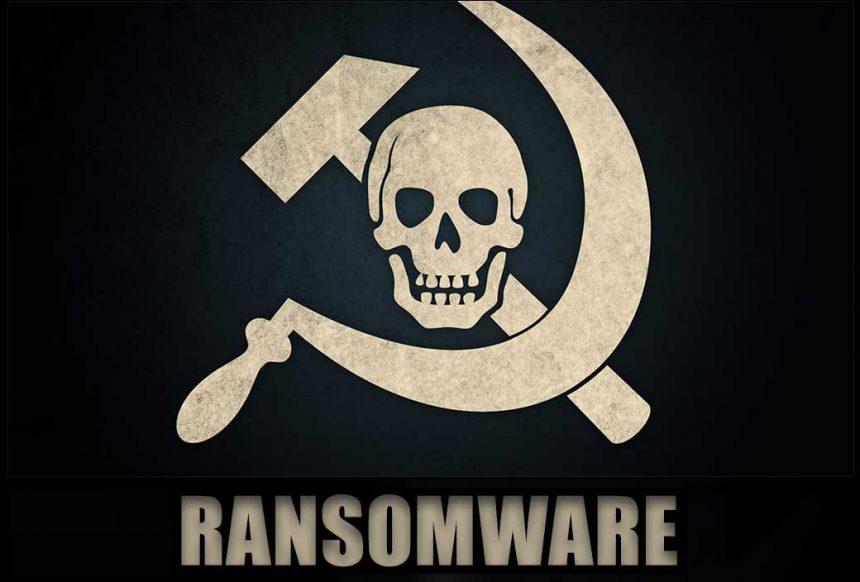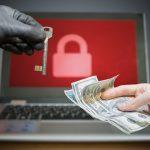Ransomware is a dangerous and increasingly common form of malware that encrypts files on an infected device, effectively holding the victim’s data hostage. Cybercriminals use ransomware to extort victims, demanding a ransom in exchange for a decryption key. This tactic allows attackers to profit from the urgency and distress of individuals and organizations. Among the numerous ransomware threats, BlackZluk ransomware is a particularly harmful variant, using advanced encryption to lock files and demanding ransom payments for their release.
Remove annoying malware threats like this one in seconds!
Scan Your Computer for Free with Spyhunter
Download Spyhunter now, and scan your computer for this and other cybersecurity threats for free now!
Overview of BlackZluk Ransomware
BlackZluk ransomware is a malicious program designed to infiltrate systems, encrypt valuable files, and coerce users into paying a ransom to regain access to their data. This ransomware variant typically spreads through malicious email attachments, phishing links, or compromised software downloads. Upon installation, it proceeds to scan the infected system for specific file types, encrypting them and altering their extensions to indicate they are inaccessible. For example, files may end up with a “.blackzluk” extension, marking them as encrypted by this malware.
After encryption, BlackZluk leaves a ransom note on the victim’s device, typically in a text file located on the desktop or in affected folders. This note demands payment in cryptocurrency, often Bitcoin, to ensure anonymity for the attacker. The ransom note threatens to delete the decryption key if the ransom is not paid within a certain timeframe, adding urgency to the victim’s decision-making.
How BlackZluk Ransomware is Installed
BlackZluk ransomware can infiltrate a system through a variety of means:
- Phishing Emails: Often, BlackZluk is embedded in malicious email attachments that appear as legitimate files. Once opened, the malware installs itself on the system and begins its encryption process.
- Compromised Websites: Visiting a malicious website or clicking a compromised link can trigger a ransomware download without the user’s consent.
- Software Bundling: Fake or pirated software downloads may carry BlackZluk ransomware, which installs alongside the software unbeknownst to the user.
Actions and Consequences Post-Installation
Once BlackZluk ransomware is installed on a system, it executes the following actions:
- System Scan: The malware scans the system for specific files, focusing on documents, images, and databases.
- File Encryption: BlackZluk encrypts targeted files, appending the “.blackzluk” extension to signify they are locked.
- Ransom Note: The malware creates a ransom note file, instructing the victim to pay for a decryption key. The note often includes a Bitcoin wallet address, instructions on how to obtain cryptocurrency, and a deadline.
The consequences of BlackZluk ransomware are severe: victims are unable to access their encrypted files, experience potential data loss, and face financial strain if they choose to pay the ransom.
The Ransom Note Details
The BlackZluk ransom note typically reads as follows:
If you do not pay the ransom, we will attack your company again in the future.
Start messaging with your unique ID an incident file #RECOVERY#.txt
your unique ID
–
Hello my dear friend (Do not scan the files with antivirus in any case. In case of data loss, the consequences are yours)
Your data is encrypted
Unfortunately for you, a major IT security weakness left you open to attack, your files have been encrypted
The only method of recovering files is to purchase decrypt tool and unique key for you.
Download the (Session) messenger (hxxps://getsession.org) in messenger: 0569a7c0949434c9c4464cf2423f66d046e3e08654e4164404b1dc23783096d313 You have to add this Id and we will complete our converstion
In case of no answer in 24 hours write us to this backup e-mail: blackpro.team24@onionmail.org
Our online operator is available in the messenger Telegram: @Files_decrypt or hxxps://t.me/Files_decrypt
Check your e-mail Spam or Junk folder if you don’t get answer more than 6 hours.
Contact us soon, because those who don’t have their data leaked in our press release blog and the price they’ll have to pay will go up significantly.
Attention
Do not rename encrypted files.
Do not try to decrypt your data using third party software – it may cause permanent data loss.
We are always ready to cooperate and find the best way to solve your problem.
The faster you write – the more favorable conditions will be for you.
Our company values its reputation. We give all guarantees of your files decryption.
What are your recommendations?
– Never change the name of the files, if you want to manipulate the files, be sure to back them up. If there are any problems with the files, we are not responsible for them.
– Never work with intermediary companies because they charge you more money.Don’t be afraid of us, just email us.
Sensitive data on your system was DOWNLOADED.
If you DON’T WANT your sensitive data to be PUBLISHED you have to act quickly.
Data includes:
– Employees personal data, CVs, DL, SSN.
– Complete network map including credentials for local and remote services.
– Private financial information including: clients data, bills, budgets, annual reports, bank statements.
– Manufacturing documents including: datagrams, schemas, drawings in solidworks format
– And more…
What are the dangers of leaking your company’s data.
First of all, you will receive fines from the government such as the GDRP and many others, you can be sued by customers of your firm for leaking information that was confidential. Your leaked data will be used by all the hackers on the planet for various unpleasant things. For example, social engineering, your employees’ personal data can be used to re-infiltrate your company. Bank details and passports can be used to create bank accounts and online wallets through which criminal money will be laundered. On another vacation trip, you will have to explain to the FBI where you got millions of dollars worth of stolen cryptocurrency transferred through your accounts on cryptocurrency exchanges. Your personal information could be used to make loans or buy appliances. You would later have to prove in court that it wasn’t you who took out the loan and pay off someone else’s loan. Your competitors may use the stolen information to steal technology or to improve their processes, your working methods, suppliers, investors, sponsors, employees, it will all be in the public domain. You won’t be happy if your competitors lure your employees to other firms offering better wages, will you? Your competitors will use your information against you. For example, look for tax violations in the financial documents or any other violations, so you have to close your firm. According to statistics, two thirds of small and medium-sized companies close within half a year after a data breach. You will have to find and fix the vulnerabilities in your network, work with the customers affected by data leaks. All of these are very costly procedures that can exceed the cost of a ransomware buyout by a factor of hundreds. It’s much easier, cheaper and faster to pay us the ransom. Well and most importantly, you will suffer a reputational loss, you have been building your company for many years, and now your reputation will be destroyed.
Do not go to the police or FBI for help and do not tell anyone that we attacked you.
They won’t help and will only make your situation worse. In 7 years not a single member of our group has been caught by the police, we are top-notch hackers and never leave a trace of crime. The police will try to stop you from paying the ransom in any way they can. The first thing they will tell you is that there is no guarantee to decrypt your files and delete the stolen files, this is not true, we can do a test decryption before payment and your data will be guaranteed to be deleted because it is a matter of our reputation, we make hundreds of millions of dollars and we are not going to lose income because of your files. It is very beneficial for the police and the FBI to let everyone on the planet know about the leak of your data, because then your state will receive fines under GDPR and other similar laws. The fines will go to fund the police and FBI. The police and FBI will not be able to stop lawsuits from your customers for leaking personal and private information. The police and FBI will not protect you from repeat attacks. Paying us a ransom is much cheaper and more profitable than paying fines and legal fees.
The note may include:
- Payment instructions
- A deadline to pay the ransom
- Contact information for further negotiation
This tactic aims to create panic, pushing the victim to pay the ransom quickly. Ransomware is aptly named due to this coerced exchange of funds for data recovery.
Symptoms of BlackZluk Ransomware Infection
If your system is infected with BlackZluk ransomware, you may observe the following symptoms:
- Unusual File Extensions: Encrypted files display a “.blackzluk” extension.
- Ransom Note: A text file with ransom instructions, often named “READ_ME.txt” or “DECRYPT_INSTRUCTIONS.txt,” appears on the desktop or within encrypted folders.
- Slow System Performance: Encryption processes can heavily tax system resources, resulting in decreased speed.
- Inability to Access Files: Attempting to open encrypted files returns error messages or displays unreadable content.
Detection Names for BlackZluk Ransomware
Several antivirus programs may detect BlackZluk ransomware using different names:
- Trojan.Ransom.BlackZluk
- Ransom:Win32/BlackZluk
- Ransom.BlackZluk.Generic
- Win32:BlackZluk
Similar Ransomware Threats
Other ransomware threats similar to BlackZluk include:
- STOP/Djvu Ransomware: A widespread ransomware variant that targets personal data and demands ransom.
- Maze Ransomware: Known for both encrypting and exfiltrating data, threatening to publish it if the ransom isn’t paid.
- Phobos Ransomware: Another variant that uses specific extensions to encrypt files and demands payment for their decryption.
Comprehensive Removal Guide for BlackZluk Ransomware
If your system is infected with BlackZluk ransomware, follow this detailed guide to remove it and attempt to restore your files:
Remove annoying malware threats like this one in seconds!
Scan Your Computer for Free with Spyhunter
Download Spyhunter now, and scan your computer for this and other cybersecurity threats for free now!
Step 1: Disconnect from the Internet
This step prevents the ransomware from communicating with its command-and-control server.
- Unplug the Ethernet cable or disable Wi-Fi to isolate the infected system.
- Turn off any shared network drives to prevent further spread.
Step 2: Boot into Safe Mode with Networking
- Restart your computer and press the F8 key repeatedly until the Advanced Boot Options screen appears.
- Select “Safe Mode with Networking” and press Enter.
- Log in to your system as an administrator.
Step 3: Use SpyHunter to Scan and Remove Malware
SpyHunter is a powerful anti-malware tool that can effectively detect and remove ransomware threats:
- Download SpyHunter on a clean computer or in Safe Mode.
- Install SpyHunter on the infected computer and perform a full scan.
- Follow the on-screen instructions to remove any detected malware, including BlackZluk.
Note: SpyHunter offers a free scan to detect malware. Removing threats may require a licensed version.
Step 4: Restore Your Files
If you have backups, restore your files from a clean backup source. Do not connect backups until BlackZluk is fully removed.
If no backup is available, you may attempt file recovery tools, but there is no guarantee they will work on ransomware-encrypted files.
Preventing Ransomware Infections in the Future
To prevent ransomware infections, follow these best practices:
- Avoid Suspicious Links: Don’t click on links or download attachments from unknown sources.
- Keep Software Updated: Regularly update operating systems and software to patch vulnerabilities.
- Backup Your Files: Keep regular backups in an offline or cloud-based location.
- Use Reliable Security Software: Install a reputable anti-malware tool like SpyHunter to monitor for threats.
Using SpyHunter for regular scans can help prevent ransomware infections by identifying suspicious files before they cause harm.





